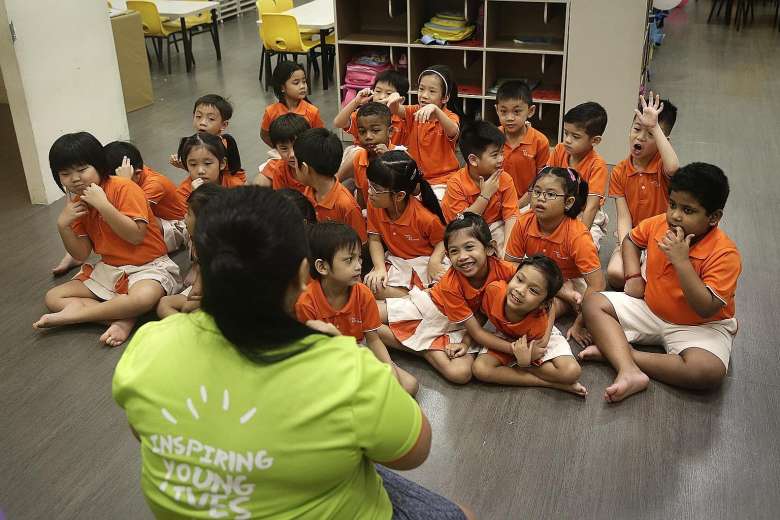Childcare centres and kindergartens, which are regulated under different laws, will be held to higher and more consistent standards in a move to improve their quality.
By early 2019, both types of pre-schools will have to get licences that are renewed regularly. Currently, kindergartens are registered through a one-off process.
A new law passed in Parliament yesterday will also vest the authorities with more investigative powers to ensure pre-schools uphold these standards, and grant them more flexibility in handling less serious offences by providing a wider range of regulatory sanctions.
These are among the key provisions in the new Early Childhood Development Centres (ECDC) Bill.
Said Minister for Social and Family Development Tan Chuan-Jin, who announced the changes: “The new ECDC Bill is an important milestone in raising the quality of early childhood development in Singapore and provides parents with greater confidence that the Government is making Singapore a good place to raise families.”
The law governs the 1,800 or so childcare centres and kindergartens here which come under the Child Care Centres and Education Acts respectively, and where more than 165,000 children are enrolled.
It does not, however, cover Government-run ones like the Ministry of Education (MOE) kindergartens.
The new law is expected to take effect over the next year after other detailed regulatory requirements are gazetted by early next year. Kindergartens will have up to a year, after the gazetting, to get licensed under the new law.
Mr Tan said the common licensing framework will prompt centres to maintain their standards to continue operating for another term.
The new Bill also includes provisions that ensure the quality and suitability of staff.
For instance, all staff – including those who do not teach and those from vendors conducting enrichment at pre-schools – will have to be approved by the Early Childhood Development Agency (ECDA) before they work at the centres.
“All individuals will be assessed on their track record, especially pertaining to children’s safety,” said Mr Tan.
Subsidiary laws to be gazetted later will give more details on specific operational requirements.
The changes enacted yesterday come after about two years of public consultations and briefings with the sector to explain the new requirements.
ECDA expects most pre-schools to meet the new standards.
Excluding new childcare centres which have a one-year licence, four in five centres have the maximum two-year licence. The agency’s assessment of kindergartens suggests that almost all kindergartens would be able to meet the new requirements as well.
While the Bill received support from all 13 MPs who spoke on it, five of them said MOE kindergartens should not be exempted from it – an issue that was raised during ECDA’s public consultation in 2015.
Back then, ECDA said MOE kindergartens will still be held to “consistent standards”, with MOE directly being accountable to Parliament.
But Non-Constituency MP Daniel Goh said: “Parliament cannot be expected to perform the role of ECDA, since it is a legislative body and cannot play a regulatory function to closely hold MOE kindergartens to consistent standards.”
Mr Louis Ng and Ms Lee Bee Wah (Nee Soon GRC) said some people may see the exemption as “double standards”.
Responding, Mr Tan said: “MOE is not a fringe player that is coming in, or one of those small establishments that has no background.”
He said the MOE kindergartens are run directly by the Government and come under the Education Act, along with other national schools.
He added: “(The MOE kindergartens) will meet the requirements that are demanded of the rest of the other centres as well.”
Medical doctor Nur Farhan Abbas, 35, has a son enrolled in a kindergarten. She said: “It is good that the Government has more powers to enforce the rules, but I would have hoped for more guidelines on the pre-school fees they charge.”


